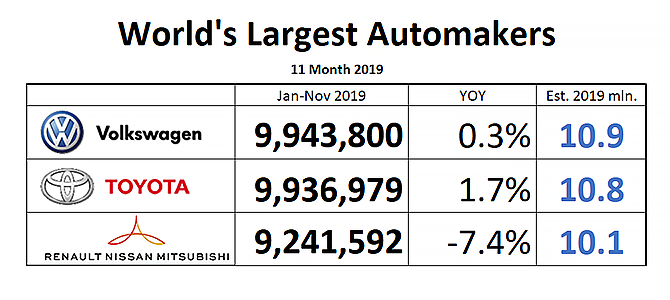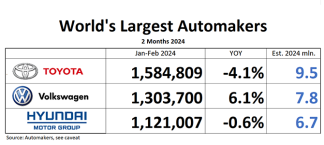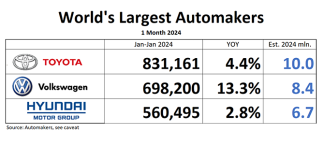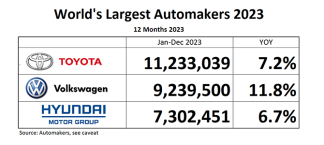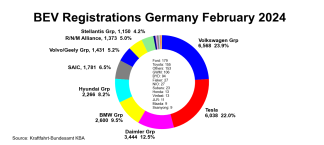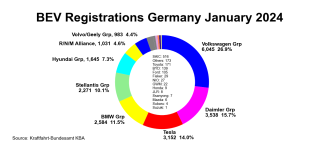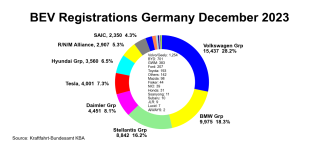With only one more month to go, Volkswagen and Toyota are neck on neck in a duel for World’s Largest Automaker 2019, while the scandal-plagued Renault-Nissan-Mitsubishi looks increasingly pale around the nose. Last month, we said that Volkswagen stood a chance to lead the pack after sitting in the #2 position for all of the year. 4 weeks later, it happened, and Volkswagen squeezed past Toyota by a razor-thin 6,821 units. Due to differences in methodology (Toyota reports production, while VW reports somewhat elastic “deliveries,” see caveat below) let’s call it even until the year officially ends.
In the #3 slot is a disheveled Alliance. While Volkswagen and Toyota managed to increase their output, a heroic feat in a declining overall market, the Franco-Japanese group is down a whopping 7.4%. Troublemaker Nissan is responsible for the bulk of the bad results. Renault and Mitsubishi are both down by around 5%, but Nissan managed to decrease its year-to-date output by nearly 10%. An hour before Nissan sent out that piece of bad news today, it announced another shocker: The man who was picked to engineer Nissan’s turn-around, freshly-minted Chief Operation Officer Jun Seki, threw in the towel only three weeks after he was made part of a new leadership triumvirate that took the helm of Nissan on December 1. He resigned over an argument with likewise freshly-minted CEO Makoto Uchida, Tokyo media reports. The triumvirate is now down to two, Uchida and his new CFO Ashwani Gupta, and Reuters sources claim that there is “no instant, cohesive chemistry achieved by those appointments.”
And now the necessary caveat:
The race for World’s Largest Automaker is not decided by sales, but by production, and this analysis attempts to track production, not sales, because this is how the world automaker umbrella organization OICA ranks automakers.
Due to the different methodologies of their measurement, “sales” numbers have proven to be unreliable, and are prone to ‘sales reporting abuses,” as recent scandals in the U.S., along with rampant “self-registrations” in the EU have shown.
At the same time, data reported by automakers are becoming increasingly hard to compare.
Toyota reports production and sales. Volkswagen reports “deliveries” to wholesale – which can be cars dumped on dealer lots, or actual sales to customers. The Alliance numbers used to be a blend of production data reported by Nissan and Mitsubishi, and deliveries reported by Renault. As of September 2018, Renault started to report sales only, forcing us to use those.
